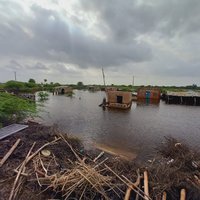Cambodia
In Cambodia, poverty remains pervasive specifically in the rural areas. 77% of Cambodia’s population lives in rural area, and 20% of the rural population (approx. 2.5 million people) is living below the national poverty line. Some other social and environmental challenges that the nation face include lack of access to safe water, food insecurity, malnutrition, deforestation, improper waste management and disposal and limited access to electricity. SMEs are a vital driver to economic growth for Cambodia, accounting for 99.8% of companies, 58% of GDP and 70% of jobs creation (MISTI, 2018). The Enterprise Programme is expanding to Cambodia in 2024.
The role of women continues to grow in Enterprise Programme enterprises. Our work has resulted in 18,500 additional women being able to join the workforce and provide stable, secure incomes for their families
For every £1 invested the programme generates over £3 in increased profits for enterprises, wages and income for producers.
Nearly 55,000 farmers have benefited from their involvement with Enterprise Programme and have seen their incomes increase. About 11,000 farmers got involved as new suppliers or members of the cooperatives owing to the growth of the enterprises supported.



